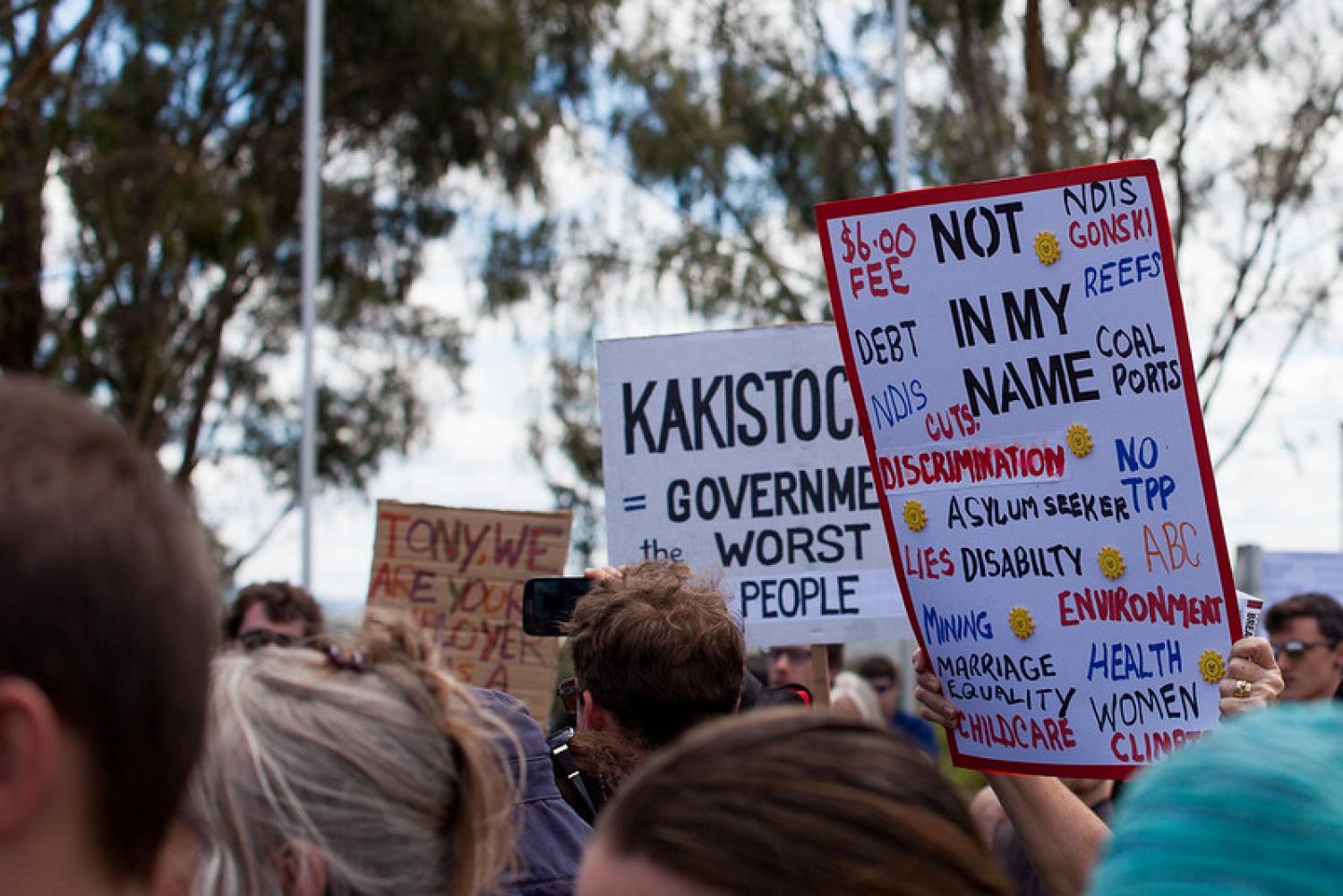One of the striking things about the Australian debate on Crimea is that there hasn't been one. Events in Crimea may have serious consequences for the world order, yet with some honourable exceptions, the issue has not been addressed in Australia with either thoughtfulness or urgency.
In particular, where are the voices on the left speaking out against Russia's sinister and brutal conduct against its smaller neighbour, Ukraine? Did Crimea appear on any of the placards in the March in March (pictured)? Where are the outraged op-eds?
Imagine if the US were moving tens of thousands of troops, wearing uniforms without national insignia, into a bordering country on a trumped-up pretext. Imagine if Washington were fomenting, and then exploiting, secessionist fervour. Imagine if the Americans were annexing and formally absorbing chunks of other countries. The resulting brouhaha would envelop Australia. Parliament would be seized of the matter. The letters pages would be groaning with denunciations. The streets would be full of protesters. Essays would most certainly be written.
Yet Russia has done these things, and the reaction has been indifference.
The only peep I've heard is from Antony Loewenstein in The Guardian Australia. I encourage everyone to read Mr Loewenstein's article, purely for its comic value. He makes a few cursory references to the unpleasantness of the Putin regime, in particular its homophobia. But when it comes to what he coyly describes as Russia's 'involvement' in Ukraine, Mr Loewenstein is silent. For him, the real villains are the Western media – which he faults for running unflattering pictures of a shirtless Mr Putin – and, naturally, the US. [fold]
Of course! Washington is to blame! With its 'record of flagrantly breaching international law', says Mr Loewenstein, it would be hypocritical for Washington to criticise 'potential Russian breaches of law.' (Notice that while Washington's breaches are flagrant, Moscow's breaches are only potential.) Somehow an article about Russia's invasion of its neighbour becomes a discussion of neoconservatism in the State Department. I'm surprised Mr Loewenstein didn't follow his reasoning to its logical conclusion and blame Tony Abbott too.
Mr Loewenstein and his friends complain about double standards. But they also practice them.
Silence and indifference are not confined to Australia, of course. We have not yet heard from Edward Snowden, who lies secure in the bosom of the KGB. Yesterday the Washington Post published another Snowden leak on the NSA. Isn't it an interesting coincidence that none of the zillions of documents that Mr Snowden stole seem to reflect poorly on Mother Russia?
And what of Julian Assange, late of the Russia Today network? The other week he poked his head up on a screen at South by Southwest to implicitly endorse the annexation. 'Geopolitically, it is utterly intolerable for Sevastopol to fall into the hands of NATO,' he opined. (Mr Assange fancies himself as a grand strategist.) That would be 'an existential threat to Russia.'
I am a supporter of Australia's alliance with the US; I think America's effect on the world is largely benign. However, when Washington launched its wrong-headed and foolhardy invasion of Iraq, I opposed it publicly.
But then, I see consistency as a virtue.
Photo by Flickr user David Burke.

